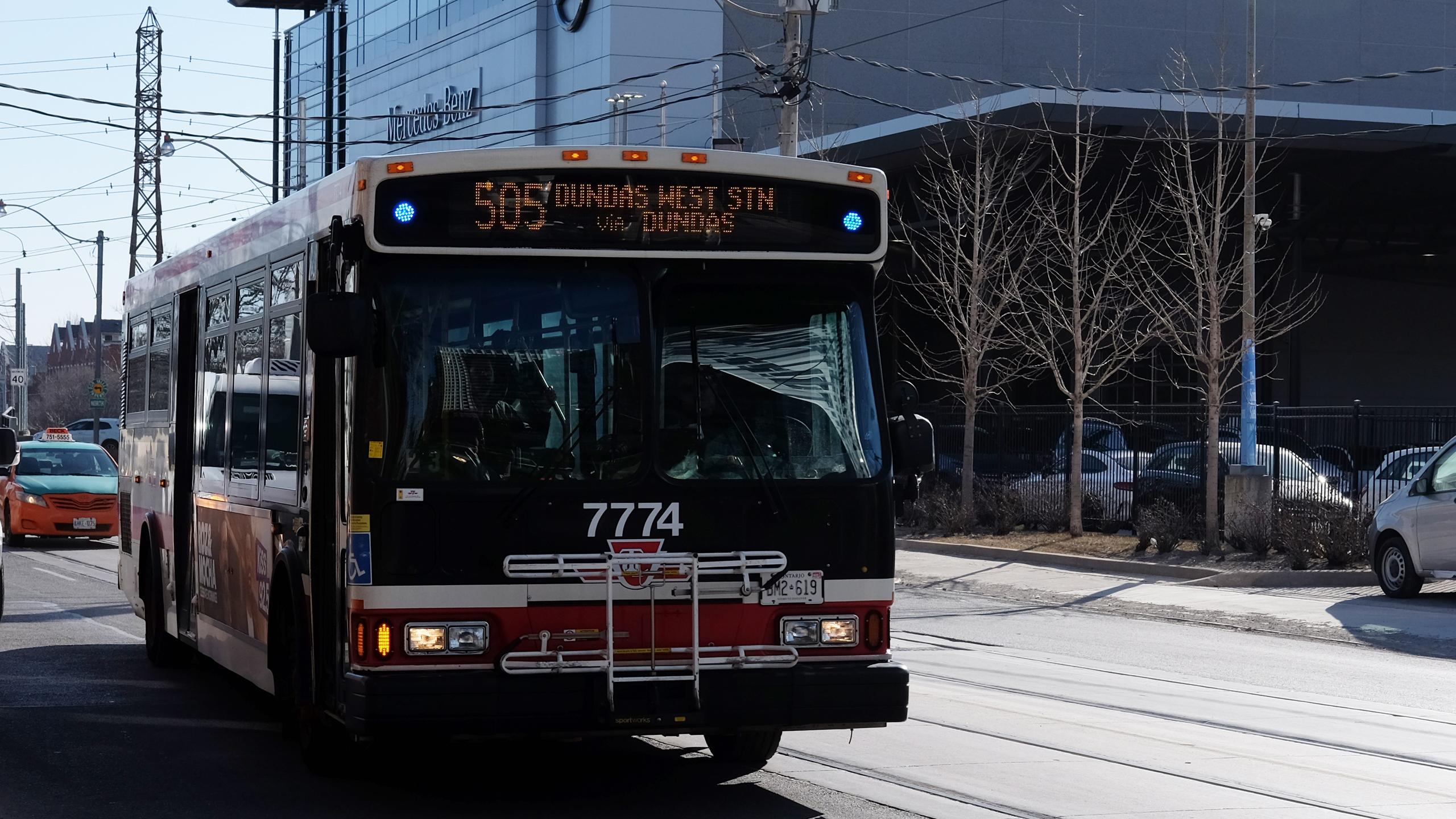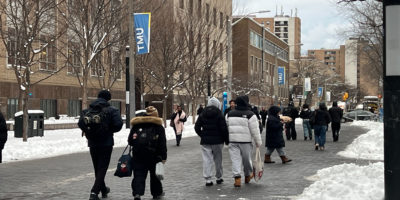By Valerie Dittrich
Transportation hours can be useful for tuning yourself out with the latest Mozart album. However, commuting can turn into a scary thing really quickly if you don’t remain vigilant.
Assault is a surprisingly common occurrence on the TTC. Streetcars and buses warn against assault against drivers with signs all over vehicles, drawing to attention that at least one TTC worker is assaulted every single day.
A 2016 report from the Toronto Star states that over 4,000 crimes have taken place on TTC buses since 2010. The Star also reports that between 2010 and 2015, there were 577 reports of sexual assaults on TTC vehicles or property. There were also 70 more reported assaults as of July 2016 alone. That rounds out to 124 assaults in 2016 — and many still go unreported.
Personally, I commute back and forth to school everyday on the 501 Queen streetcar. I’m so used to my route that sometimes I forget that predators can still creep their way into it.
A few weeks ago, I was coming home from a work shift. It was around 10 p.m. and I was waiting for my streetcar at the intersection of Queen and Bathurst. I noticed from the corner of my eye a man who seemed to be pacing around me.
Once the streetcar came, the pacing man stepped on first. He was then abruptly stopped by the driver, who denied him entry.
The man, clearly outraged, punched the clear plastic window that sits in front of the driver’s seat. He got off the streetcar, the driver was clearly shaken.
As the man walked off, he all of a sudden tried to grab my neck in a lunging motion.
I shouted at the top of my lungs and blocked his attempt. He stepped away from me. As I got onto the streetcar, the driver asked me repeatedly if I was okay. She then told me that the same man had boarded the streetcar she was driving a few days prior, harassed her and attempted to physically assault her. Many of the passengers also asked me if I was doing okay, if I was hurt or if I needed to call someone. I said I was fine.
But despite being physically okay, I felt unsafe. I took an Uber home that night. I called someone and asked them to stay on the phone with me until my car came.
I decided against reporting the incident. Even though it was a disturbing experience, I didn’t have the time or energy to deal with the consequences of an experience that lasted only seconds.
Statistics can never indicate how often experiences like mine can take place, so it’s good to take your safety into your own hands. Ryerson’s WalkSafe program, which is a 24/7 security escort service, is limited to College, Carlton, Dundas, Jarvis and Yonge Streets, so you’re not always going to be able to rely on this common campus resource.
That’s why I recommend this to those who have a phone on them: Have someone to call and let them know where you are whenever you plan on travelling at night — especially if you’re not familiar with the area. You can also report any assault in a discreet manner using the TTC’s reporting app.
And for those who don’t have access to a phone, remember to take yourself out of any uncomfortable situation. Walk to the next stop, move to a different seat or consult the mandatory transit officer at your subway station.
Taking the TTC doesn’t have to be scary and you shouldn’t have to be afraid of it. I only ask you to keep your eyes peeled, Ryerson.












S. M.
I was assaulted on the TTC, and so far police have not identified the man, I have begged news outlets to help me identify the man in what as a racial and sexual assault. I’m sorry to hear you experienced it too.